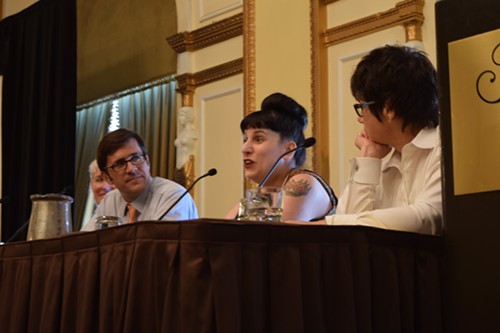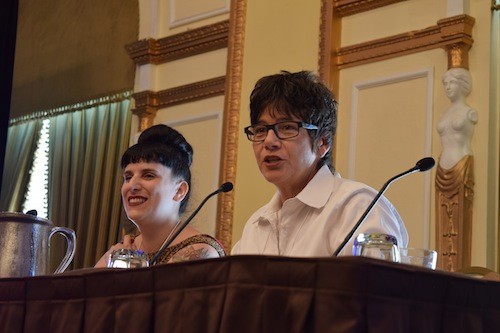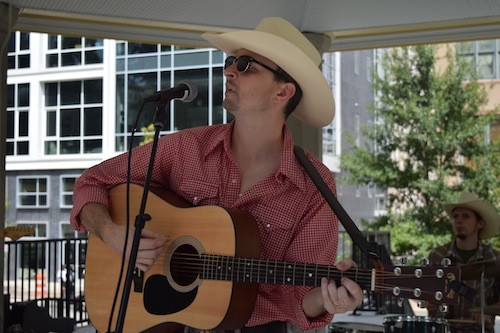
There’s no one way to write about food. In his memoir A Year in Provence, Peter Mayle opts for a worldly insouciance, describing a civet of hare with something approaching religious reverence. Meanwhile, in Kitchen Confidential, Anthony Bourdain writes prose that explodes like a cluster bomb.
Which got me to thinking: What’s the best way to write about food? How do you stand out from the crowd? Should your writing reflect popular tastes or try to lead them? And how the heck do you manage social media, anyway?
I put these questions to attendees—both distinguished and little-known—at the 2014 conference of the Association of Food Journalists (AFJ). It was held, these past few days, right here in Memphis, at the Peabody.
[jump]
These are their answers.
Kim Severson, The New York Times: “There’s a sense of panic in the industry. And that’s where the tent poles matter—these bastions of real journalism and quality food writing. In this crazy digital marketplace, we think it’s important to have these touchstones of real knowledge.”
Kat Kinsman, CNN’s Eatocracy: “Trying to manage social media is like trying to pack a suitcase on top of a moving car. You used to be able to go out into the world and experience things, then come back to the office and write a story. Those days are gone.”
Sid Evans, Southern Living: “There is no more intimate connection you can have with a reader than when they take a recipe from your site, make it for their family, and the family says, Hey! That was great!”
Nancy Leson, The Seattle Times: “One of my managing editors once said to me, go read Tom Wolfe, and then write me a lede. No sentence should be more than seven words; no word should be longer than two syllables.”
Patricia West-Barker, The Santa Fe New Mexican: “What idea are you passionate about? At this point, food is so big that you can’t do it all. I see my writing as a community service, so I focus on farmers and local businesses.”
Kat Kinsman, CNN’s Eatocracy: “I really have a ½ second rule for myself. If something doesn’t grab my attention in ½ of a second, I close the tab.”
Sid Evans, Southern Living: “Images are everything. People eat with their eyes. Somehow we have to draw people into the magazine, and usually we’re doing that with pictures.”

